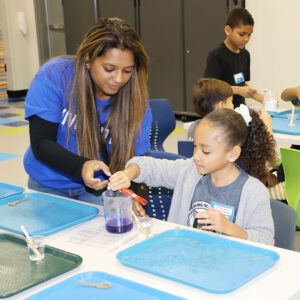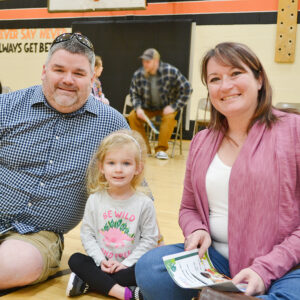About Us
Our Mission
The mission of United Way of the Capital Region is to improve lives in Cumberland, Dauphin and Perry counties by identifying the most pressing community needs, finding solutions to those needs, and demonstrating how these solutions are making a difference.
Our History
This is how we LIVE UNITED.
Since 1921, our neighbors and friends living in Dauphin, Cumberland, and Perry counties have relied on the services and support of United Way of the Capital Region. United Way has been changing lives and addressing our community’s most pressing needs from the beginning. While our methods have evolved, one thing remains constant: our commitment to helping those who need it most.
What follows is an overview of our work.
1921
The Harrisburg Welfare Federation (now United Way of the Capital Region) was formed, raising $246,899 for 21 member agencies.
1930s
Amidst the Great Depression, 1,000 additional families sought assistance from the organization. In 1936, the Harrisburg Welfare Federation brought together local groups to study community needs.
1940s
War relief efforts served as the focus for most agencies during the first several years of the decade. The Harrisburg Welfare Federation changed its name to the Community Chest sometime between 1941 and 1942.
1950s
Community leaders voiced their concerns about the plethora of fundraising campaigns. In response, the Community Chest changed its name to the Tri-County United Fund in 1955.
1960s
More agencies applied to join the Tri-County United Fund network. Many agencies began holding their own fundraising campaigns.
1970s
The Tri-County United Fund organized a volunteer and fundraising response to Hurricane Agnes in 1972. In 1975, the Tri-County United Fund and the Council for Human Services merged. Later that year, the organization became the Tri-County United Way.
1980s
In 1989, the Tri-County United Way was renamed United Way of the Capital Region.
1990-1991
During the Persian Gulf War (1990-1991), United Way established a telephone hotline to help families of military personnel secure food, clothing and counseling.
1996
Following a devasting flood, United Way brought together service providers for a coordinated response to the emergency. The same year, United Way launched its “Success by 6” program to help children prepare to start school.
2000
In March of 2000, United Way’s headquarters in Harrisburg was destroyed by fire. In 2002, United Way’s current headquarters
opened in Enola.
2001
In response to the terrorist attacks on September 11, 2001, United Way established a special fund for victims and their families.
2003-2004
United Way began a transition from an annual fundraiser to an organization measuring its impact in the community.
2006
United Way conducted a comprehensive survey of housing in Perry County, which identified showed a lack of affordable housing. As a result, the Perry County Housing Partnership Board was formed.
2007
United Way completed the region’s first comprehensive study of the needs and assets of the Latino community. To help find solutions to the issues identified in the study, United Way distributed grants for services to the Latino community.
2008-2009
During the economic recession, United Way launched a basic needs campaign for program partners struggling to provide necessities to those in need.
2014
United Way and six community organizations conducted a comprehensive study of our community. “Life in the Capital Region: 2014 Assessment of Our Community” examined the changing demographics and health and human service needs through the lens of health, education, income and basic needs.
2015
Based on the findings of the community assessment, United Way’s board of directors identified the following areas of focus to strategically drive the organization’s future:
- Education – Disparities in school readiness and school achievement.
- Health – Lack of access to health care.
- Income – Children and families living in poverty.
- Basic Needs – Increase in the number of families needing safety net services.
2015-2016
United Way convened expert task groups to develop solutions and strategies to address the root causes of the most pressing needs in our community. In 2016, United Way began its transition from a funder-allocator to collective impact business model of work.
2017-Present
United Way launched and expanded three new community projects. Our goal is to move the needle on access to health care, school readiness and workforce development, while continuing to support basic needs services.




